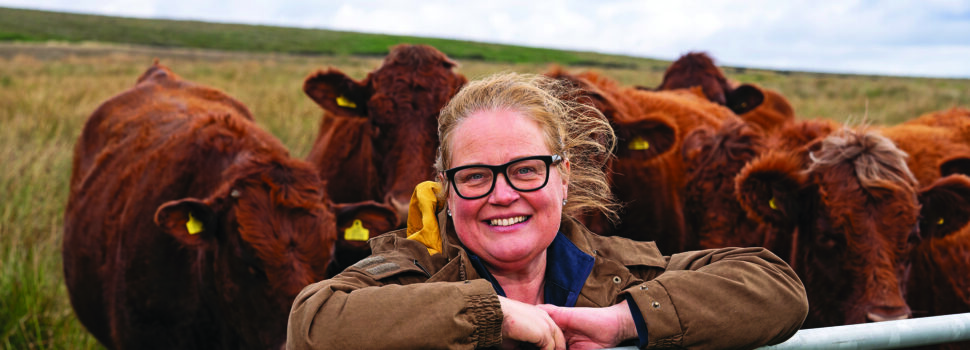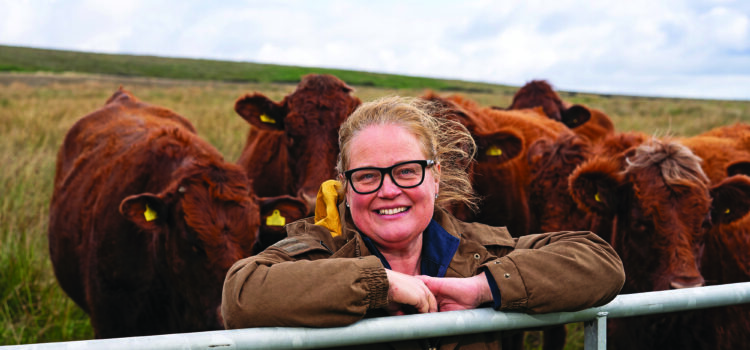


Huge challenges around water quality and availability are limiting farmers’ ability to feed the nation, the government has been told.
Defra secretary Steve Reed was among more than 60 attendees at a Water Summit which say the NFU bring together industry experts, water companies, environmental groups and supply chain representatives. Challenges discussed at the summit included water pollution, climate change and increasingly unpredictable weather patterns – as well as evolving regulatory financial pressures and lack of critical investment in water infrastructure.
NFU vice-president Rachel Hallos hosted the event on her West Yorkshire farm earlier this summer. She said: “Water is our most precious resource. It’s absolutely vital to producing the food our country needs.”
Increasing pressure
Farmers were facing increasing pressures on water supplies – including resources, flooding and quality issues. “It all undermines the stability and resilience of our farming businesses and ultimately impacts our food security.”
Acknowledging that farming itself was contributing to some challenges, Ms Hallos said nutrients used by farmers to produce food were impacting the water quality in rivers. The cycle of drought and floods leading to poor harvests was also a problem.
“The knock-on effect is clearly highlighted in a survey of NFU members which reveals nearly two-thirds have experienced a severe weather event in the past 10 years that has affected their farming business in some way.
“Now’s the time to start having open and honest conversations and treating water as a national strategic priority. For our part, that means rolling our sleeves up, taking the initiative and tackling these challenges head on.”
Working together
The NFU has made a series of pledges on behalf of its members when it comes to water. These include water quality tests and the adoption of new technology to help ensure water is used as efficiently as possible.
But Ms Hallos said everyone in the food supply chain had to work tougher. “We cannot do it alone. We need everyone to start thinking about what we can each individually and collectively do and what will make a real difference.”
Three breakout sessions were held during the event, looking at issues of investment, innovation and circular economy. An overriding message from attendees was the need for urgent investment in water infrastructure. This included support for infrastructure improvements, such as slurry stores and reservoirs. Defra secretary Steve Reed suggested the Sustainable Farming Incentive could help farmers reduce water pollution when it relaunches.
NFU ‘bucket list’ of pledges on water
The NFU has pledged to support a pilot scheme for farmers to undertake their own water quality testing. The pilot scheme will take place in a defined catchment with a scientific partner to trial water testing methodologies. The NFU says it will also highlight promising data and technology-led approaches to help farmers use water more efficiently.
Best practice
An NFU water hub will raise awareness among farmers of relevant rules and best-practice advice on water. It will also signpost growers to funding initiatives and ways to prepare for an Environment Agency inspection.
“We will work with members across all our regions to support the formation of water abstractor groups and communicate the risks and opportunities in the future demand for water while protecting the environment,” says the NFU.
Knowledge exchange
Pledging to work with industry experts and regulators to roll out nutrient management advice, the NFU says knowledge exchange will support water quality outcomes, nutrient use efficiency and productivity.
“We will work with planners and regulators on resilient and sustainable options for accessing water, particularly during times and in places of scarcity, to deliver food security,” it says.
“We will also continue our work as a founding member of the Rural Flood Resilience Partnership.”

